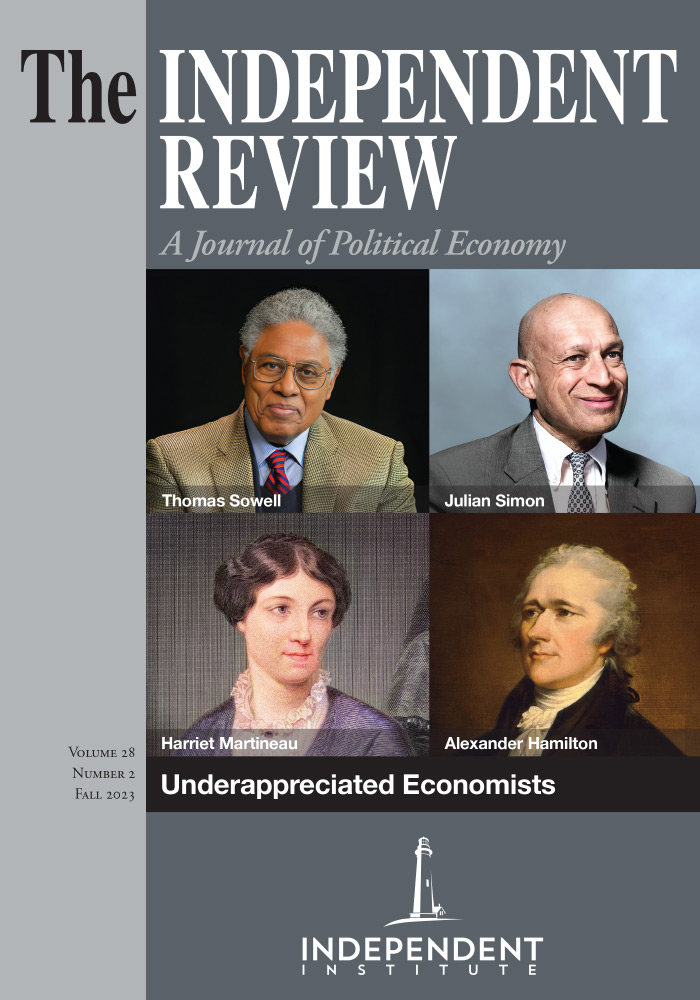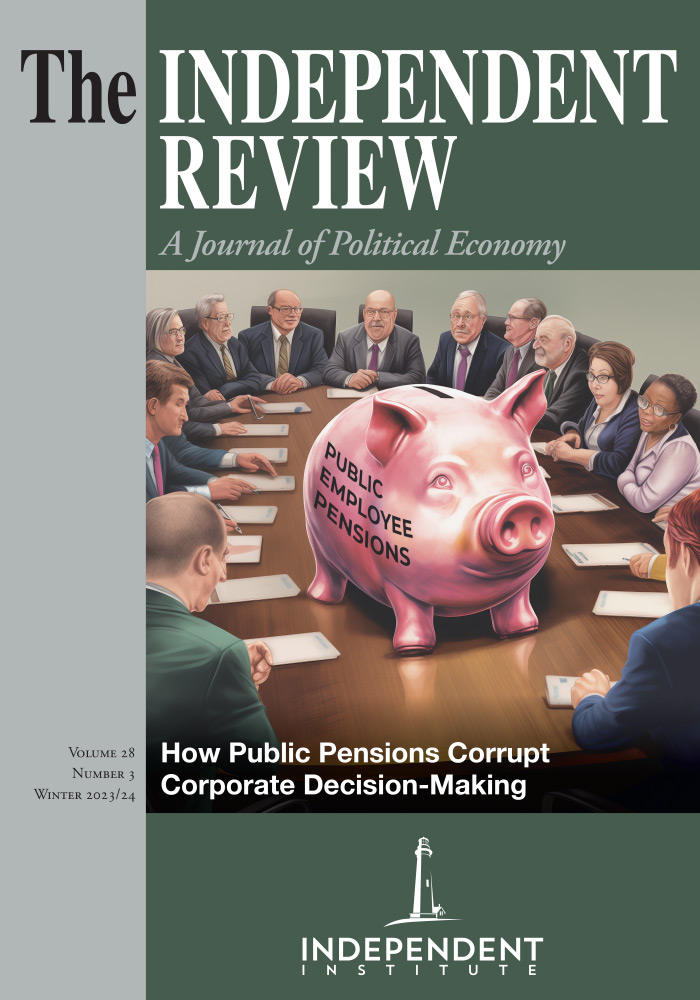Alexander Hamilton (1757–1804)
Alexander Hamilton is often viewed as a fan of “big government,” public debt, and fiat money. Hamilton has been misused by statists, who often embrace him, and abused by classical liberals, who often disparage him. A fair verdict shows that he was an accomplished political economist—an astute synthesizer of principles and policies—and correct ones. His unique combination of talents marks him as an original and underappreciated practitioner of wise economic-financial policymaking.
This full text of this article will be available on this page nine months after its initial print publication. To read it now, please buy this issue in print or downloadable eBook & PDF format, or in the Independent Review app on iOS or Android, or on Magzter which offers digital access on smartphones, tablets, and web browsers.
Richard M. Salsman is Instructor of Political Science at Duke University.
| Other Independent Review articles by Richard M. Salsman | |
| Summer 2023 | A Comparative History of Central Bank Behavior: Consistency in Monetary Policy in the US and UK |
| Winter 2018/19 | Restoring America’s Fiscal Constitution |
| Winter 2017/18 | The Ontology and Function of Money: The Philosophical Fundamentals of Monetary Institutions |









